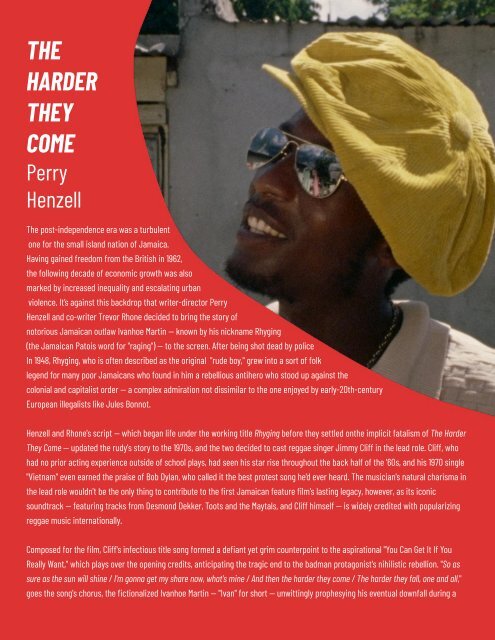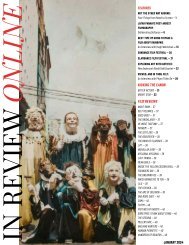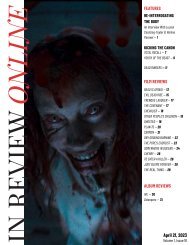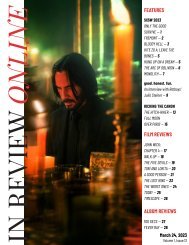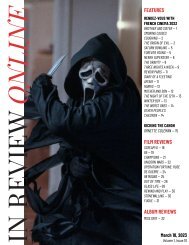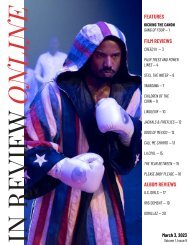InRO Weekly — Volume 1, Issue 6
Create successful ePaper yourself
Turn your PDF publications into a flip-book with our unique Google optimized e-Paper software.
THE<br />
HARDER<br />
THEY<br />
COME<br />
Perry<br />
Henzell<br />
The post-independence era was a turbulent<br />
one for the small island nation of Jamaica.<br />
Having gained freedom from the British in 1962,<br />
the following decade of economic growth was also<br />
marked by increased inequality and escalating urban<br />
violence. It’s against this backdrop that writer-director Perry<br />
Henzell and co-writer Trevor Rhone decided to bring the story of<br />
notorious Jamaican outlaw Ivanhoe Martin <strong>—</strong> known by his nickname Rhyging<br />
(the Jamaican Patois word for "raging") <strong>—</strong> to the screen. After being shot dead by police<br />
In 1948, Rhyging, who is often described as the original "rude boy," grew into a sort of folk<br />
legend for many poor Jamaicans who found in him a rebellious antihero who stood up against the<br />
colonial and capitalist order <strong>—</strong> a complex admiration not dissimilar to the one enjoyed by early-20th-century<br />
European illegalists like Jules Bonnot.<br />
Henzell and Rhone's script <strong>—</strong> which began life under the working title Rhyging before they settled onthe implicit fatalism of The Harder<br />
They Come <strong>—</strong> updated the rudy's story to the 1970s, and the two decided to cast reggae singer Jimmy Cliff in the lead role. Cliff, who<br />
had no prior acting experience outside of school plays, had seen his star rise throughout the back half of the '60s, and his 1970 single<br />
"Vietnam" even earned the praise of Bob Dylan, who called it the best protest song he’d ever heard. The musician's natural charisma in<br />
the lead role wouldn't be the only thing to contribute to the first Jamaican feature film's lasting legacy, however, as its iconic<br />
soundtrack <strong>—</strong> featuring tracks from Desmond Dekker, Toots and the Maytals, and Cliff himself <strong>—</strong> is widely credited with popularizing<br />
reggae music internationally.<br />
Composed for the film, Cliff's infectious title song formed a defiant yet grim counterpoint to the aspirational "You Can Get It If You<br />
Really Want," which plays over the opening credits, anticipating the tragic end to the badman protagonist's nihilistic rebellion. "So as<br />
sure as the sun will shine / I'm gonna get my share now, what's mine / And then the harder they come / The harder they fall, one and all,"<br />
goes the song's chorus, the fictionalized Ivanhoe Martin <strong>—</strong> "Ivan" for short <strong>—</strong> unwittingly prophesying his eventual downfall during a


